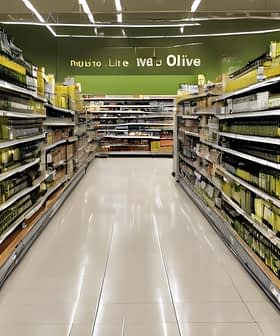European Commission Seeks Feedback on Labeling Rules
Actors in the olive oil sector and consumers have been asked for their feedback on proposed amendments to EU rules on the labeling of olive oil.
In view of proposed amendments to a regulation covering the requirements for certain optional indications on the labeling of olive oil, the European Commission’s directorate-general for Agriculture and Rural Development has requested feedback from stakeholders via a dedicated website.
Specifically, the draft delegated regulation addresses two main clarifications covered by Article 5 of Regulation (EU) No 29/2012 on marketing standards for olive oil. One concerns the labeling of the value of certain physicochemical parameters in the case acidity is mentioned on the label and the other determines under which conditions the harvest year should be mentioned.
With regard to the first, under the existing regulation, the value of physicochemical parameters like peroxide value, wax content and ultraviolet absorption must be included only if the acidity is mentioned on the label. The proposed change specifies that these parameters must correspond to the “date of minimum durability” or in other words, the “best before” date. The reason given is that such parameters often change after bottling and that consumers should not be misled.
Coming to the second clarification, i.e. under which conditions the harvest should be mentioned, a suggestion was made by Italy to allow EU member states to decide whether to make the labeling of the harvest year compulsory. This would concern extra virgin and virgin olive oil produced on the country’s own territory and intended for the domestic market.
Under the current regulation, listing the harvest year on the label of extra virgin and olive oils is optional if the oil contained in the bottle is from a single harvest.
The EU’s labeling rules are designed to allow consumers to have correct and comprehensive information about the food products they’re buying, including the content and composition.
The draft text is available in English here.
Those who are interested in providing their feedback can do so until the end of March 2018 via this European Commission webpage.
Feedback can be given either anonymously or under a personal name or that of an organization. The comments received are visible on the website – so far there are very few comments.
Once adopted, the new act will include an overview of the feedback received and how it contributed to the revised act.








